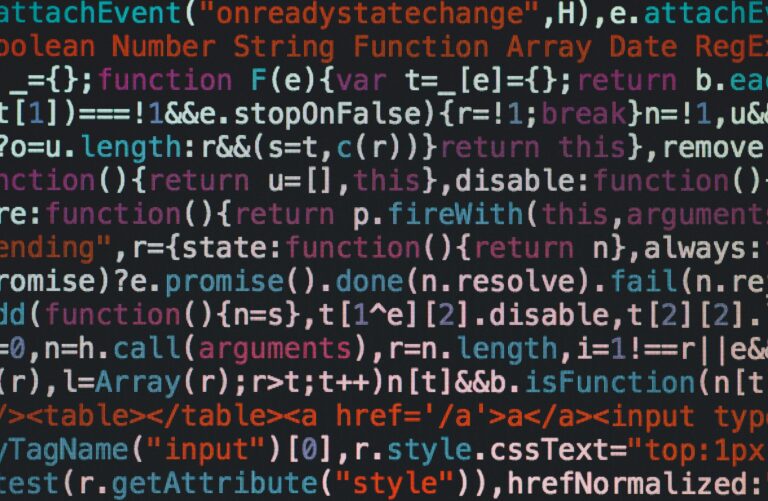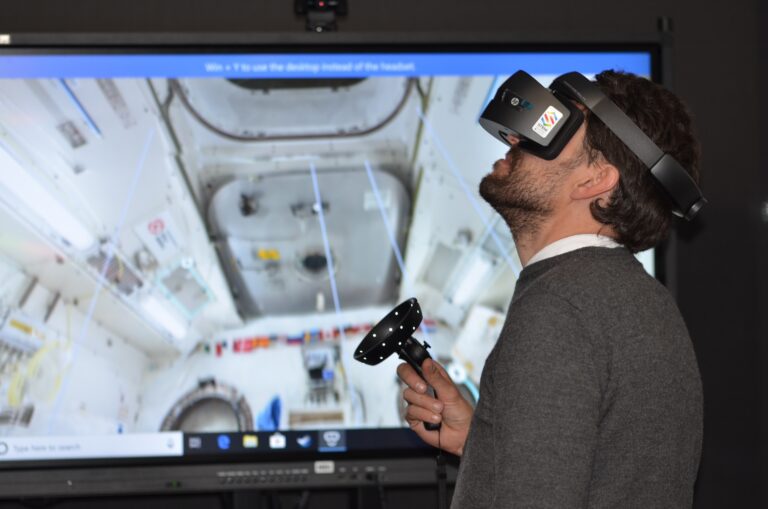Building Bridges: Highlights from the OLC Innovate 2020 Conference

KPU recently became an institutional member of the Online Learning Consortium, so when the organization announced that their OLC Innovate 2020 conference would take place entirely online, we immediately signed up for an unlimited group package to enable our university community to engage in the many rich conversations across 160+ sessions over the two-week event. This week’s blog post shares a few brief highlights from the event, from the perspectives of three members of our Commons team. If you missed the event please note that the recordings from all of the streamed sessions are available online for a year. All you have to do to access them (on demand) is register online.
Lisa Gedak, Teaching and Learning with Technology Strategist
The theme of this year’s virtual OLC Innovate conference 2020 “building bridges” provided many opportunities to learn about maintaining connections during these times of remote teaching and learning. One incredible session I attended “Checking in or checking out? Engaging distance learners by infusing active learning in the online classroom” modelled the “building bridges” theme by providing an interactive session with opportunities to reflect on and discuss the experiences of fellow participants from across North America.
Presented by Amanda Smothers, Yvonne Johnson, and Daniel Cabrera from the University of Northern Illinois, this engaging session transitioned through five topics surrounding active learning in distance education. Each topic had a correlating Padlet in which participants responded to discussion prompts, and after each topic’s brainstorm, the presenters would host a brief discussion period. The chat was lively, and many ideas for active learning in digital spaces were provided. Easily implemented are many of the practical strategies provided and they are captured in the respective Padlets that are accessible for KPU faculty looking to incorporate active learning in their online classes.
Gordon Cobb, Educational Consultant in Educational Media
Jason Guzman’s presentation “Building a DIY recording studio and supporting media creation with universal design for learning and the community of inquiry” focused on the configuration of a recording space at the Columbia Center for Teaching and Learning and the technical specifications involved in its buildout. This studio was built with carefully selected hardware and software to create high-quality media and accommodate the variety of media creation needs of faculty in diverse disciplines. Accessibility of the physical space was a primary concern and its design included a wheelchair-accessible ramp, a height-adjustable desk and lights, and a 4K camera on articulating arms to accommodate a range of orientations, and media ports, switches, and other peripherals that are located in easily accessible areas.
Jason and his CCTL colleagues found that having a recording space not only provides opportunities to have conversations with faculty about media creation but also about course design and often allows for them to expose faculty members to the various course design principles such as Community of Inquiry (Garrison, et al, 2000) and Universal Design for Learning (Meyer et al, 2014). Jason explained that the Community of Inquiry framework provides approaches to media use that considers the attention that needs to be paid to the teaching as well as cognitive and social presence when bringing course materials into a digital space. Further, he proposed that the Universal Design for Learning helps us think about the variety of ways digital media content created in our recording studio can be represented and made accessible for a diverse audience and learning preferences.
What I found most exciting about this studio setup was the inclusion of a small user-friendly teleprompter, which allows faculty to create short video-based lessons easily and efficiently. This was by far my favorite presentation of OLC 2020 and the one I found most applicable to what I do at our own Teaching and Learning Commons at KPU.
Dr. Sean Nufer is the Director of Educational Technology at TCS Education System, and an associate adjunct professor at The Chicago School of Professional Psychology and Pacific Oaks College. His presentation “Getting started with 360 video and photos in your class” explored how to create interactive 360 degree videos that you can use in your class as well as tools and platforms to allow you to select the right camera, produce immersive multimedia videos, and create applications in your LMS that facilitate effective and engaging learning experiences. He showed photos taken with a collection of 360 degree cameras his department has purchased, comparing and contrasting the virtual photos and videos possible with each model and the pros and cons of each.
Rajiv Jhangiani, Acting Vice Provost, Teaching & Learning
I was able to attend both of the OLC Innovate keynotes, which was fun because both Maha Bali and Martin Weller are friends and collaborators of mine.
One of the things I most admire about Maha is that she walks the talk. She began by expressing gratitude and care and acknowledged that hers would be a “connectivist keynote” that was shaped by conversations she had had with people in her personal learning network. She recognized and amplified these voices throughout her talk, which focused on how we can centre equity and well-being in every element of our work as educators—every moment, every lesson, every course, and every institutional decision. In doing so she touched on the effects of surveillance and proctoring technologies, automated essay grading, proprietary textbook platforms, lecture capture, and grades. I especially appreciated her reminder that education is never neutral and that the risks of working in the open are both real and unevenly distributed. You can view a recording of her keynote, browse through her slides, or watch an post-keynote interview with her.
Martin’s keynote shared insights from 25 years of educational technology, drawn from his new open access book of the same name. He chronicled an optimistic phase (up to about the year 2000, the most significant development of which was the development of the web), a mainstreaming phase (exemplified by the mass adoption of learning management systems), and a pessimistic phase (exemplified by Silicon Valley hype about “disruptive” technologies paired with historical ignorance). There is simply too much goodness in his talk to summarize here so instead I will share his alternative title for his talk (“Why knowing some history of ed tech is a good idea in the pandemic”), share a post-keynote interview with him, and point you to his book to learn more.
Note: The Online Learning Consortium’s next conference is OLC Accelerate 2020, which will take place from November 9-20, 2020


